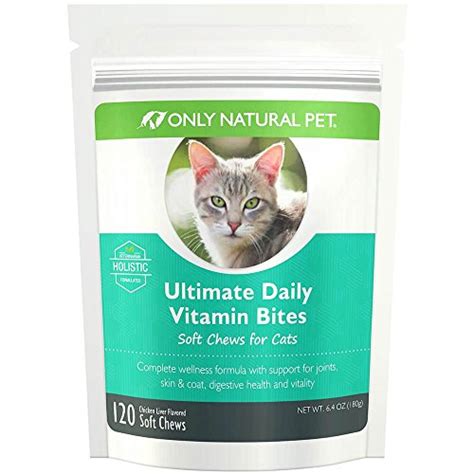Why Supplements and Vitamins?
Cats, like any other living beings, require a balanced and nutritious diet to maintain their optimal health and well-being. However, even the most carefully curated cat diets may fall short of providing all the essential nutrients that felines need. This is where supplements and vitamins come into play. By supplementing their diet with these vital substances, cat owners can ensure their furry companions receive the necessary nourishment to thrive.

Types of Supplements and Vitamins for Cats
The vast array of supplements and vitamins available for cats can be overwhelming. Here’s a breakdown of some of the most common types:
Supplements
- Essential fatty acids (EFAs), such as omega-3 and omega-6 fatty acids, support healthy skin, coat, and joints.
- Glucosamine and chondroitin promote joint health and reduce inflammation.
- Probiotics aid digestion and support a healthy immune system.
- Antioxidants protect cells from oxidative damage.
Vitamins
- Vitamin A supports vision and immune function.
- Vitamin D aids in calcium absorption and bone health.
- Vitamin E acts as an antioxidant and protects against cell damage.
- B vitamins are crucial for energy metabolism and nervous system function.
Benefits of Supplements and Vitamins for Cats
Incorporating supplements and vitamins into a cat’s diet offers numerous benefits:
- Improved joint health: Glucosamine and chondroitin can help reduce joint pain and stiffness, especially in older cats.
- Enhanced skin and coat condition: EFAs nourish the skin and fur, resulting in a healthy, shiny coat and reduced shedding.
- Boosted immune system: Probiotics and antioxidants strengthen the immune system, making cats less susceptible to infections and diseases.
- Alleviated anxiety: Certain supplements, such as valerian root and chamomile, possess calming properties that can help reduce stress and anxiety in cats.
- Extended lifespan: A balanced diet supplemented with essential nutrients can contribute to a longer and healthier life for cats.
Choosing the Right Supplements and Vitamins for Your Cat
Selecting the most appropriate supplements and vitamins for your cat requires careful consideration. Here are some factors to keep in mind:
- Your cat’s age: Different life stages have varying nutritional needs.
- Your cat’s health condition: Supplements can address specific health concerns, such as joint pain or allergies.
- Your cat’s diet: Some supplements may interact with certain foods.
- The quality of the supplements: Choose products from reputable brands that meet industry standards.
Table 1: Recommended Daily Intake of Essential Nutrients for Cats
| Nutrient | Amount | Units |
|---|---|---|
| Vitamin A | 5000 – 10000 | IU |
| Vitamin D | 200 – 400 | IU |
| Vitamin E | 10 – 20 | IU |
| Omega-3 fatty acids | 1 – 2 | g |
| Omega-6 fatty acids | 2 – 4 | g |
Table 2: Comparing Popular Cat Supplement Brands
| Brand | Key Ingredients | Benefits |
|---|---|---|
| Nutramax | Glucosamine, chondroitin | Joint health |
| Pet Naturals | Omega-3 fatty acids | Skin and coat health |
| Purina Pro Plan | Probiotics | Digestive health |
| Blue Buffalo Wilderness | Antioxidants | Immune system support |
| Hill’s Science Diet | B vitamins | Energy metabolism |
Table 3: Potential Side Effects of Cat Supplements and Vitamins
| Supplement/Vitamin | Potential Side Effects |
|---|---|
| Glucosamine | Nausea, diarrhea |
| Probiotics | Gas, bloating |
| Antioxidants | Can interfere with certain medications |
| Omega-3 fatty acids | Can cause bleeding in high doses |
| Vitamin A | Toxicity in excessive amounts |
Table 4: Tips for Safely Administering Supplements and Vitamins to Your Cat
- Mix supplements into your cat’s food and administer twice a day.
- Hide tablets in treats or pill pockets to make them more palatable.
- If your cat refuses to take the supplements, consult with your veterinarian.
FAQs
-
What are the most important supplements for cats? Essential fatty acids, glucosamine, chondroitin, probiotics, and antioxidants.
-
How often should I give my cat supplements? Follow the recommended dosage on the product label or consult with your veterinarian.
-
Can I give my cat human supplements? No, human supplements are not formulated for cats and may contain harmful ingredients.
-
Are there any risks associated with giving my cat supplements? Yes, potential side effects include nausea, diarrhea, and interactions with medications.
-
How do I choose the best supplements for my cat? Consider your cat’s age, health condition, diet, and the quality of the product.
-
Can I give my cat too many supplements? Yes, overdosing on supplements can lead to health problems.
-
Should I consult with my veterinarian before giving my cat supplements? Yes, your veterinarian can recommend the most appropriate supplements and dosages for your cat.
-
What are the signs that my cat is not tolerating supplements well? Vomiting, diarrhea, lack of appetite, or lethargy.
Conclusion
By incorporating high-quality supplements and vitamins into their cats’ diets, responsible pet owners can positively impact their furry friends’ health and longevity. From improved joint health to enhanced skin and coat condition, the benefits of supplementation are undeniable. However, it’s crucial to choose the right products, administer them appropriately, and monitor your cat for any potential side effects. By working closely with your veterinarian, you can create a personalized supplementation plan that optimizes your cat’s well-being for years to come.





















